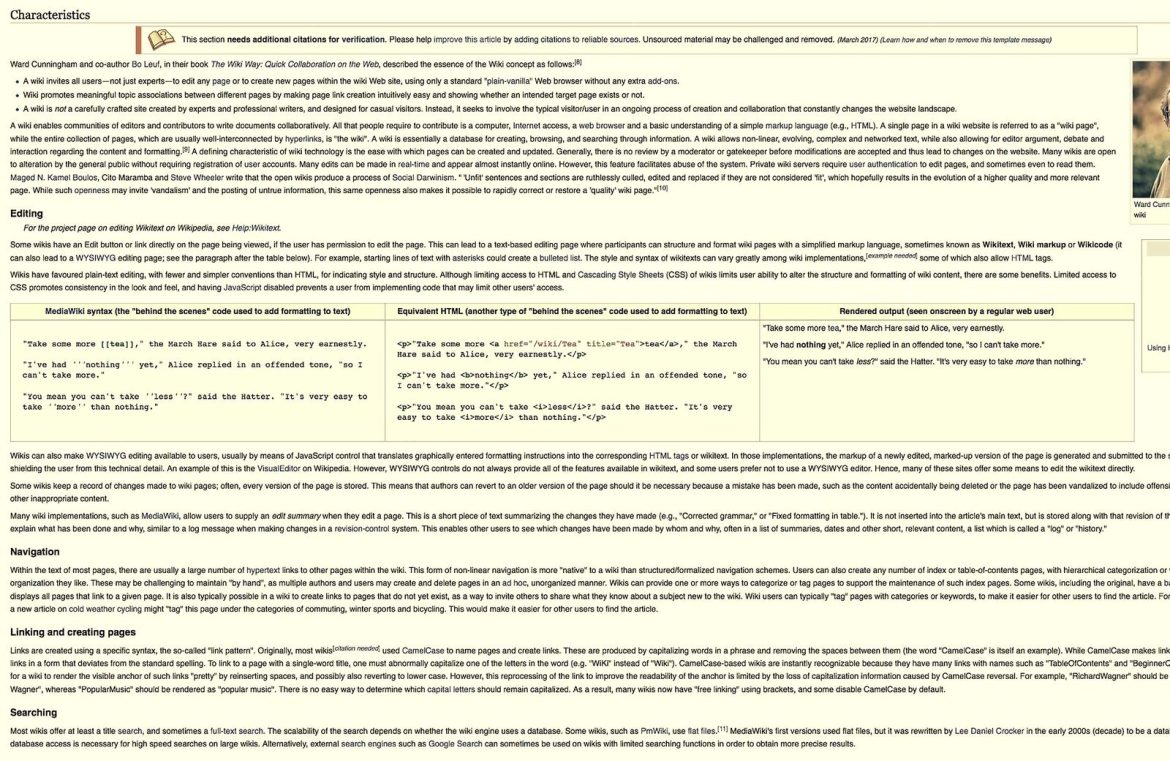Comprehensive Front and Back-end Enhancements
Wikipedia has yet to set a maximum width for its content area. Scouring through the theme options available for MediaWiki (the engine behind Wikipedia), one finds that they are largely antiquated and not particularly intuitive. The same holds true for DokuWiki, PhpWiki, among others. Partly, this staleness can be attributed to the vintage status of these commonly used wiki platforms. Adapting them to modern web standards can be a Herculean task depending on their foundation architecture. It’s evident that the solution lies in a new breed of wiki software — self-hosted tools that marry the wisdom of the old guard with contemporary insights into user experience, usability, and content handling. And we’re certainly in dire need of frameworks that simplify the theme development process. Take a moment to consider Wiki.js, an innovative project which appears to be on the correct trajectory. A PHP iteration, or an easier installation process for Wiki.js, would be most welcome. (If you’re crafting a novel wiki solution, do share it in the comments section below.)
In-Document Searching for Lengthy Discourses
It may seem counterintuitive to advocate for a feature that relies on JavaScript in today’s minimalist web climate, yet I’ve encountered overwhelmingly extensive wiki pages that would greatly benefit from a built-in search functionality. Although browser-native search features already exist (a sound fallback), a significant fraction of users are oblivious to the full capabilities of their web browsers. An integrated search tool within a page would serve as a tremendously helpful asset when one must pinpoint very specific details, especially when a table of contents falls short.
Interactive and Reorganizable Tables
If your wiki delves into topics that frequently require tabulation, expect tables to become a common fixture. At times, a well-structured table is the most effective means to display copious amounts of information. Consider a scenario where you’re listing the finest books within a genre. Should this list grow long, it may be pragmatic (although I state this with reservations) to employ JavaScript enhancements that facilitate the exploration of data, allowing users to filter by year, author, or other relevant criteria, substantially improving accessibility.
‘Favorites’ and ‘Recently Visited’ Pages for User Convenience
Revisiting wikis or knowledge bases (excluding Wikipedia) is a personal habit of mine, often returning to specific topics to reinforce my recall of web design nuances, among other subjects. Offering users a catalogue of their last accessed pages or a customizable ‘favorites’ compilation can be exceedingly handy. These features could also serve as enticing incentives for potential memberships, if you’re considering that route. It’s worth reiterating — never underrate the allure of convenience.
Parting Musings
At their core, wikis represent an ingenious infrastructure. By merely linking to an as-of-yet nonexistent page, you trigger the creation of that page, which then awaits content contributions. This organic approach fosters both content development and navigation. Knowledge bases adopt a more stratified framework, and effectively so. While the foundational ideals behind these systems remain sound, they thrive in spite of the unwieldiness and intricacy of legacy (and sometimes exceedingly complex) platforms. Observing how contemporary designers and developers reshape wikis and comparable platforms, all the while leveraging today’s expansive knowledge base, is something I look forward to. With all due respect to the blogosphere, there are times when what we really require is a well-constructed wiki.

